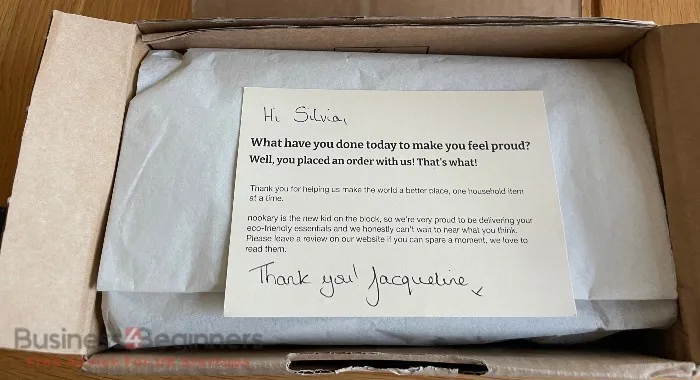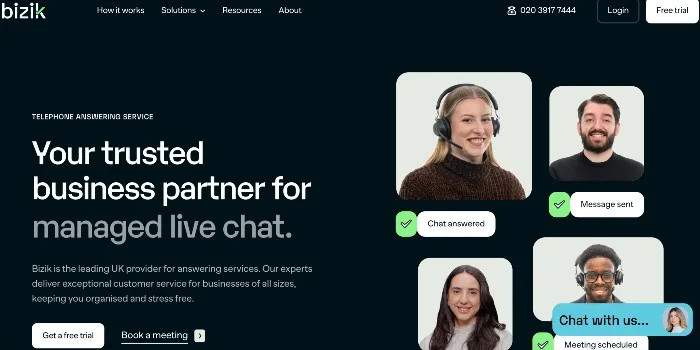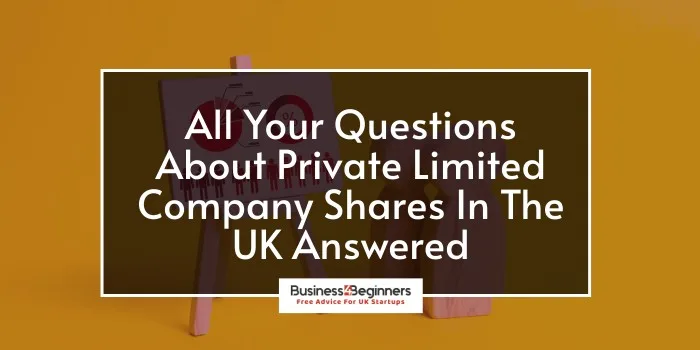Starting a business generally involves getting essential business stationery.
Even with more content going to the digital/paperless medium, there is still a strong need for printed materials, even for companies that are just starting out.
Of course, finding an affordable solution for these printing needs is very important. Most companies don’t have capital just lying around to blow on big printing costs, so finding a professional, yet reasonably priced service could make a big difference for your bottom line.
What Is The Purpose Of Business Stationery?
Now, we know having your own business is exciting, and you might be eager to rush out and buy anything with your logo on. But, before you rush into a decision, it’s important to consider the purpose of your business stationery.
Some people buy business stationery to fill their office or store with on-brand stuff. This can be a great way to make your office unique and help your employees feel pride in the business.
Others will be buying branded stationery to give away to customers or visitors (such as at a conference).
Doing so helps to evoke the law of reciprocity (desire to pay back favours and gifts given us) and also ensures your brand stays in people’s mind long after they’ve met you (providing they actually use what you gave them!).
Sometimes business stationery is purely functional. In that case, you’re better off avoiding paying extra to have the products branded up as doing so would serve no real purpose except to cost you money!
Is Stationery An Asset Or An Expense?
It’s worth remembering that the cost of any stationery you purchase will come from your profits as a business, helping you to lower your tax bill.
But, is stationery classed as an asset or an expense?
Well, in almost all cases, stationery will be considered an expense. That means you’ll record the full cost as expenditure at the time of purchase using basic bookkeeping techniques.
It would only be classed as an asset or stock if you are holding large amounts that have value to someone else, such as if you’re selling branded items. Your chosen accounting software will usually be able to help you ensure any business stationery purchases are recorded correctly.
What Stationery Does A Business Need?
Of course, needs may vary from business to business, but here are some of the most common categories for essential business stationery.
1. Business Cards
Let’s be honest… the digital age may be here, but nothing will ever replace handing a physical business card to a potential client, customer, or colleague.
In fact, 57% of business owners still look at business cards as a core part of personal networking (El-Hage, 2024). In other words, it’s a quick and easy way to give out your name and contact information while promoting your business in one fell swoop.
And depending on how impressive your business cards are, they are also a great chance to make a killer first impression.
Business cards are a fundamental building block to any marketing plan, and any company that doesn’t have them will suffer as a result.
Generally speaking, the business cards generally include the following information:
- Logo
- Company name
- Tagline
- Your name & title
- Contact details
- Your address (either for a physical store or website if you’re online)
- Any social media that you’re on
The way that you present this data though is completely up to you. Some people may prefer to have each piece of information clearly listed in a nice, clean text and design that’s easy to read.
Others might want to include a QR code to replace information, so potential clients or customers can directly access your store.
There are a lot of online templates you can follow if you want a simple and nice business card. But if you want to push the boat out a little, why not get inspired by some very creative ideas that other businesses had.
Flow Yoga Studio give out business cards that are made from the same material as yoga mats and are rolled up to resemble little yoga mats.
Or Bon Vivant, a Brazilian cheese shop whose business card doubles up as a cheese grater. It’s perfect for their business and isn’t too cheesy at all.
2. Compliment Slips
Compliment slips are much like a business card, except that they offer the opportunity for a handwritten note. They are great if you want to add a more human and personal side to your business, which can be a great benefit for small businesses and startups.
Compliment slips can be used in a host of locations, such as in customer orders if you send out physical products, at events to write down key information or notes after speaking to someone (and thanking them for their time!) or just as a surprise for loyal customers to thank them for their continued support.
Many compliment slips will feature your business name, logo and contact information so customers can remember who it’s from – and how to get back in touch. But they also give you a space to handwrite a personal note into each card.

When you’re starting out, writing a quick thank you with each order won’t take up much time either – while fostering a stronger connection with your audience.

However, as you grow, it might be worth looking at printing a digital copy of your handwritten signature to save time, especially if you start shipping hundreds of products.
Compliment slips can be a great way to make a personal gesture, but it can also backfire if the compliment slips are printed unprofessionally!
As with all office stationery, make sure that you put effort into the design and quality of your prints. A handwritten note is cute. A shoddily made note can make you look unprofessional.
3. Stickers

Stickers aren’t just for children. Customised stickers for your business are a relatively low-cost way to build brand awareness and strengthen customer relationships by giving them something for ‘free’ whenever they place an order with your business.
This could be a sticker of your logo, or a small thank you, or you could think out of the box and include some unique designs relevant to your business.
Sticks can also be used as part of your shipping and packaging process – used on your parcels and envelopes to give that professional look to your mail.
Sticks can also add to the excitement of the ‘unboxing’ process, improving how customers see and interact with your product from the very second it arrives in their home.
4. Leaflets and Flyers
Leaflets and flyers are great pieces of business stationery that can be used to advertise and promote your business, mainly using local marketing channels (like physically posting flyers to local addresses!) or used at events.
The more you print, the lower the cost per flyer tends to become – which makes them a relatively inexpensive marketing channel to use compared to other digital marketing channels.
There’s also certain freedom in leaflets and flyers. There is no word count or limits in place here – you can include as much information as you want to include. However, we’d recommend not printing out novels for your customers to read.
Short, snappy statements paired with high-quality images or visuals are best for getting attention and making sure that your leaflet doesn’t end up in the bin.
In addition, leaflets can also include coupons or discounts that customers can use on your store, helping bring new customers to your business.
Again, it is important to ensure that any materials printed will be high in quality.
If the work is not going to be done well during a physical printing, then the business is most likely going to find the effort a waste of time and money. In this department, crisp images and eye-popping graphics are a must!
5. Letterheads
A letterhead is basically… the head of a letter. It’s a way of customising your correspondence, so every letter from your company is branded with your name, logo and contact information.
Think about every time you get a bill from the gas company or a letter from a solicitor. Notice how it looks more professional because it’s all in their branding? Yep, that’s the power of a nice letterhead.
A letterhead may seem a bit outdated, but you’d be surprised at when you will actually have to issue letters as a business, such as:
- Delivering any important notices and announcements
- Supplying any job documents (i.e. offer letters, cover letters or references)
- Any cover letters for business tenders or proposals
- Legal communication, such as letters to banks or authorities
Plus – letterheads can be digital and applied to online communications, such as invoices.
Most receivers evaluate your company’s professionalism and legitimacy even through your letterheads. Both young clients and experienced business representatives took particular notice of the logo placement, margin, and spacing (Rosa et al., 2018).
Because letterheads are used more in official capacities, it can be best to go simple with the branding here with very clean colours and information.
6. Note Pads

Note pads printed with a company’s letterhead or logo can be a great form of advertising that anyone can use. They are relatively cheap to make and easy to hand out… plus, they will help to keep the business at the forefront of the customer’s mind.
As well as notepads, you could also opt for sticky notes or list booklets to help customers jot down notes and reminders – while being reminded of your company the entire time.
With different types of paper options (i.e. lined, plain, grid), you can also make sure that the notepads you produce are suited to your audience.
For example, if you offer services to businesses, you might want to produce notepads that can be used for meeting notes and be taken to work.
7. Pens & Pencils
Having a few pens and pencils lying around is a great way to keep your business in people’s minds and add that professional edge if in a customer-facing role.
But buying ‘just a pen’ or pencil for a business is no easy feat. The range on offer goes from cheap, dime-a-dozen biros that might fail the first time a customer uses them (not great for your brand image!) to fancy hundreds of pounds of Parker pens in luxury cases.
For a start-up, you want to aim somewhere in the useable but still cost-effective category. You are, after all, giving these pens away for free to be a helpful reminder of your business. You want them to work, without bankrupting your company on luxury stationery.

Plus, I think it might be hard to give away Parker pens in this day and age without still incurring flashbacks of the Micheal Parkinson life insurance adverts where you could get a free Parker pen for just enquiring.
8. Envelopes and shipping materials
If you post items, having branded envelopes, packaging or tape can be a fantastic way to make your products look more professional and exciting to whoever receives them.
Having personalised shipping materials also contributes to the unboxing moment we mentioned before, meaning that customers will have a better experience of your business (and be more likely to stay loyal and promote it to friends and family!).
Just think of all the product videos you might have seen online of influencers ‘unboxing’ new hauls or products. The videos start with branded boxes – and they provide great advertisements for your business.

Custom shipping materials can also help you create boxes that exactly fit the dimensions of your product – meaning you’re not relying on standard shipping sizes that don’t fully protect your item. This could save money in the long run, ensuring your products are more securely protected.
Even if you don’t opt for fully printed boxes or envelopes, even using custom stickers (see above!) or tape can be a great way to bring your branding and excitement to your packages. A great example of this is from an online Etsy artist James Shopman – who creates and sells artistic film prints.
When you buy from him, he uses a custom tape to package his prints made from his own artwork designed to look like a film roll. It’s a perfect way to capture what he does and promote other prints to customers who might be on the lookout for more.
9. Banners
Banners are generally essential for business stationery start-ups that rely on actual foot traffic in a brick-and-mortar building.
Mostly because they are a fantastic way to draw attention during a sale or a promotional campaign. A well-designed and well-placed banner could mean the difference between a successful sale and a major loss.
Placement also matters a lot for banners. Most consumers paid more attention to signs if they were placed in points-of-purchase, aka checkout counters or a shopfront (Masters et al., 2024).
For example, a banner in a fitness studio advertising 50% off signup prices could be what your audience needs to take that last step to sign up.
If you don’t have a physical space for your business, banners are also a great way to promote your company at events.
Whether you have a stall as a small seller or are sponsoring a local conference, banners are attention-grabbing ways to promote your business and showcase what you do to a real-life audience.
Banners can also be printed on roll-up fabric, allowing for easy storage in between events.
Bonus: Branded Clothing
Yeah, we know this one isn’t really stationery, but we still thought branded clothing was worth a mention.
If you deal with customers face-to-face, clothing or a uniform branded with your logo can be a great way to add professionalism and show that you are a real business.
This perceived competence linked to uniforms highly encourages customer satisfaction and loyalty (John, 2021). In other words, a uniformed employee often creates a positive impression on the customer.
However, don’t overlook them even if you’re an exclusively online business. If you ever have photos taken or record videos, wearing branded clothing can be a great way to give a professional look online.
Where Can You Buy Essential Business Stationery?
Since it is so important to buy high quality marketing materials and essential business stationery, the very first thing to consider is professionalism.
Any branded stationery you get will be a reflection of your brand. If the products look or feel cheap, people are more likely to have a negative view of your brand.
Alternatively, if the products look and feel expensive, people are more likely to have a favourable opinion of your brand. It’s worth spending a little extra to ensure you’re giving the right impression.
Look for a company that can print high-quality materials at a great price right from the beginning instead of choosing a fly-by-night company that may or may not do professional-grade work.
There are many such companies online, though there are also many lower-quality companies that should be avoided. Make sure that you always read reviews and ask around for personal recommendations.
Looking for other ways to advertise your business and brand? Make sure to take a look at our tips and advice for online marketing, including guides such as:
- How To Promote Your Business On Google
- 6 Best Website Builders For Small Businesses
- Top 17 Small Business Website Design Tips
- How To Convert More Website Visitors Into Customers
- How To Market A Small Business On Social Media
And more! In the meantime, make sure you turn on notifications to keep up to date with all Business4Beginners news, updates and insights.







